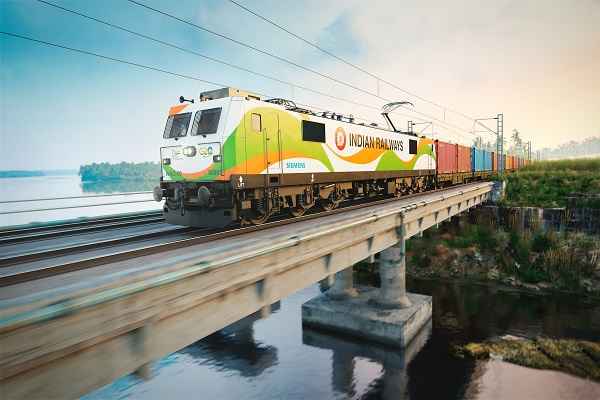 North-South Commuter Railway (NSCR): Modern Train Network Connecting Luzon Island
North-South Commuter Railway (NSCR): Modern Train Network Connecting Luzon Island India launched Bharat Taxi Service as First Cooperative-Owned Digital Mobility Platform
India launched Bharat Taxi Service as First Cooperative-Owned Digital Mobility Platform India places World’s First Live Commercial Order for Hyperloop-Based Cargo Logistics
India places World’s First Live Commercial Order for Hyperloop-Based Cargo Logistics How Weigh-in-Motion Systems Are Revolutionizing Freight Safety
How Weigh-in-Motion Systems Are Revolutionizing Freight Safety Women Powering India’s Electric Mobility Revolution
Women Powering India’s Electric Mobility Revolution Rail Chamber Launched to Strengthen India’s Global Railway Leadership
Rail Chamber Launched to Strengthen India’s Global Railway Leadership Wage and Hour Enforcement Under the Massachusetts Wage Act and Connecticut Labor Standards
Wage and Hour Enforcement Under the Massachusetts Wage Act and Connecticut Labor Standards MRT‑7: Manila’s Northern Metro Lifeline on the Horizon
MRT‑7: Manila’s Northern Metro Lifeline on the Horizon Delhi unveils ambitious Urban Mobility Vision: Luxury Metro Coaches, New Tunnels and Pod Taxi
Delhi unveils ambitious Urban Mobility Vision: Luxury Metro Coaches, New Tunnels and Pod Taxi Qatar approves Saudi Rail Link Agreement, Accelerating Gulf Railway Vision 2030
Qatar approves Saudi Rail Link Agreement, Accelerating Gulf Railway Vision 2030
Govt of India approves New Railway Projects to boost connectivity and sustainability

New Delhi, India (Urban Transport News): In a strategic move to enhance India’s railway infrastructure, the Cabinet Committee on Economic Affairs (CCEA), led by Prime Minister Narendra Modi, has given the green light to three major railway projects with a total estimated cost of approximately ₹6,456 crore. These projects, scheduled for completion by 2028-29, are set to transform India's transportation network by improving connectivity, reducing logistics costs, and supporting environmental goals.
Overview of the Approved Projects
The approved projects include two new railway lines and one multi-tracking initiative, collectively spanning approximately 300 kilometers. These developments are expected to generate around 114 lakh man-days of direct employment during construction, significantly impacting local economies.
New Railway Lines
First New Line: This line will facilitate direct connectivity between previously unlinked areas, addressing key logistical challenges and improving mobility across the network. It is designed to streamline transportation and bolster economic growth by enhancing service reliability and operational efficiency.
Second New Line: This line aims to connect additional regions, providing crucial links that will support economic activities and improve access to essential services. By expanding the rail network, this project will also contribute to regional development and employment opportunities.
Multi-Tracking Project
Multi-Tracking Initiative: This project involves expanding existing single-track lines to accommodate multiple tracks. This upgrade will alleviate congestion on some of the busiest railway sections in India, enhancing overall operational efficiency and capacity. The multi-tracking will enable smoother and more frequent services, further reducing delays and improving the logistics network.
Economic and Environmental Benefits
The development of these projects aligns with the PM-Gati Shakti National Master Plan, which emphasizes integrated planning for multi-modal connectivity. The benefits of these projects are multifaceted:
-
Enhanced Connectivity: The new lines will provide vital links to approximately 1,300 villages, benefiting about 11 lakh people. The multi-tracking project will further extend connectivity to around 1,300 villages and 19 lakh people, supporting both economic and social development.
-
Improved Logistics: By augmenting the capacity of existing lines and reducing congestion, these projects will facilitate smoother and more efficient movement of goods, including essential commodities such as coal, iron ore, and agricultural products. The capacity enhancements are expected to handle an additional 45 million tonnes per annum (MTPA) of freight traffic.
-
Sustainability Goals: The railway sector's shift towards more efficient operations will contribute significantly to reducing environmental impact. The projects are projected to decrease oil imports by 10 crore liters and cut CO2 emissions by 240 crore kilograms—equivalent to planting 9.7 crore trees. This aligns with India’s broader climate goals and enhances the sustainability of the transportation sector.
Strategic Impact
These projects are critical components of India's vision for a modern and efficient transportation network. By addressing infrastructural gaps and improving connectivity, they will play a crucial role in driving economic growth, reducing operational costs, and enhancing the quality of life for millions of people across Odisha, Jharkhand, West Bengal, and Chhattisgarh.
The expansion and enhancement of the railway network are not only expected to streamline logistics but also to provide significant boosts to regional economies. The integration of new and upgraded lines will facilitate faster movement of goods and passengers, contributing to a more robust and resilient transportation system.
The approval of these railway projects marks a significant step forward in India's transportation infrastructure development. By connecting previously unlinked areas and improving the efficiency of existing routes, these initiatives promise to drive economic growth, reduce logistics costs, and support environmental sustainability. As these projects move forward, they will bring transformative changes to the railway network, benefiting millions and reinforcing India's commitment to modernizing its infrastructure.





